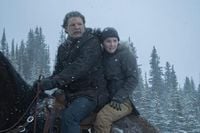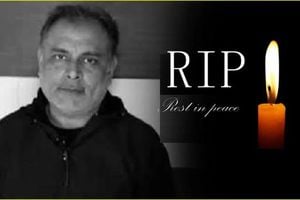As the gripping second season of HBO's The Last of Us unfolds, audiences are confronted with the shocking death of Joel, a pivotal character who has become emblematic of the series' exploration of love, loss, and the moral complexities of survival. New episodes are premiering every Sunday night, and recaps are published each Monday morning, providing fans with fresh insights into the evolving narrative.
In the latest episode, titled "Through The Valley," viewers witness a brutal turn of events that many had anticipated but few were prepared for. Joel, portrayed by Pedro Pascal, meets a harrowing fate just two episodes into the season, leaving fans reeling. This moment echoes the summer of 2020, when the gaming community was rocked by a similar shocking character death in the video game The Last of Us Part II. The decision to depict Joel's demise early in the season has sparked intense discussions about its impact on character development and storytelling.
Kyle Orland, a writer for Ars Technica and a player of the original games, reflects on the emotional weight of Joel's death, stating, "I thought we were watching the opening to a second season of a TV show in the first episode, the establishment of a new status quo that we would then explore over the course of the next few episodes. But we were, instead, playing the tutorial level of a second video game, right before everything blows up." The abruptness of this narrative shift has left many viewers questioning the direction of the series.
Andrew Cunningham, who has not played the games, expressed his surprise at the storytelling choice, remarking, "I was not prepared. Pedro Pascal, who plays Joel, knew his character would end up dead when he first signed on for the role, so at least he was prepared." Pascal noted in an interview with Entertainment Weekly, "It was always an understanding that it would stay true to the source material in a specific way and that the, let’s say, practical and exclusive obligation would be for season 1.” This acknowledgment of the source material's influence raises questions about how the show will navigate the aftermath of Joel's death.
As the narrative unfolds, the character of Abby, played by Kaitlyn Dever, emerges as a significant force driving the plot. Her motivations, which are made clear in the lead-up to Joel's death, differ markedly from the game, where players discover her backstory much later. Orland points out, "The show dampens the impact of 'The Moment' by making Abby's motivations crystal clear for 1.5 episodes leading up to it." This shift in storytelling has prompted debates about the effectiveness of character development and audience engagement.
In the aftermath of Joel's death, the show introduces a massive zombie horde battle that disrupts the calm of Jackson Hole, a community that had previously offered a sense of safety. This action-packed sequence serves to heighten the stakes and illustrate the precariousness of human existence in a world ravaged by infection. Orland noted, "The scene played out so much like a video game mission that I had to go back and make sure I hadn't forgotten about some major Jackson Hole firefight in the game." This creative decision showcases the show's ability to blend cinematic storytelling with video game elements.
Despite the intense focus on Abby's character, many viewers remain skeptical about her motivations. Cunningham articulated his feelings toward Abby, stating, "I don't sympathize with Abby! Not only is she driven solely by this bland Inigo Montoya thing, but she sadistically tortures someone who just saved her stupid life." This sentiment reflects a broader struggle among fans to reconcile the complexities of revenge and morality within the narrative.
Looking forward, showrunner Neil Druckmann hinted at the possibility of exploring Joel's character through flashbacks, similar to the narrative structure of the video game. "This is where the story starts in earnest," Druckmann said. "But I will say that we do know there are some mysteries here, some gaps, in Ellie and Joel’s relationships." This approach could provide viewers with a deeper understanding of the bond between Joel and Ellie, further enriching the emotional landscape of the series.
The episode also delves into the character of Eugene, a figure introduced in the video game but newly fleshed out in the show. Eugene's backstory, including his past as a Firefly and his relationship with Joel, adds layers to the ongoing conflict. Gail, a new character, suggests that Joel “had no choice” when he killed her husband, a sentiment that complicates the moral landscape of the narrative.
As the season progresses, fans are left grappling with the implications of Joel's death and the evolving dynamics of the characters. The show has successfully created a narrative that challenges viewers to consider the nature of justice, revenge, and the human condition in a world where survival often comes at a steep price. The emotional resonance of the characters and their intertwined fates continues to captivate audiences, ensuring that discussions about the show remain vibrant and engaging.
In summary, the second season of The Last of Us is shaping up to be a compelling exploration of grief, vengeance, and the moral complexities of a post-apocalyptic world. As viewers eagerly await the next episode, they are left to ponder the lasting impact of Joel's death and the uncertain paths that lie ahead for Ellie and the other characters in this harrowing narrative.







